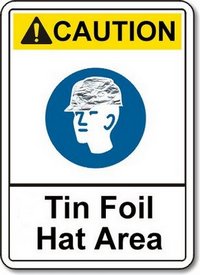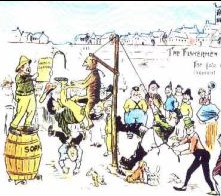Regulators and network operators across the world will be watching events unfold in Washington DC with some astonishment today, as the US telecoms industry becomes embroiled in a bureaucratic farce.
Late last week, the US regulator the Federal Communications Commission issued a landmark assertion of authority over how American operators should manage their networks – and announced a new policy framework. We won’t know what this policy framework will be for days or perhaps weeks – and the statements issued so far don’t help.
What we got on Friday was a self-contradictory press release which simultaneously both encourages and prohibits prioritizing internet traffic by application type.
Er, say what?
Well, it gets even stranger. Accompanying the commission’s release, all five commissioners issued their own individual personal statements – the FCC is split down the middle on the issue – with the two dissenting Commissioners, McDowell and Tate, complaining they weren’t given the text of the release until the last moment.
“Commissioner Tate and I received the current version of the order at 7pm last night, with about half of its content added or modified. As a result, even after my office reviewed this new draft into the wee hours of the morning, I can only render a partial analysis,” wrote Commissioner Robert McDowell.
Well-placed sources also suggested that having voted, they then realised it was immediately unworkable – so the statement was redrafted after the vote. Maybe that’s in keeping with an exercise in “Policy-based Evidence-making”: Take a vote and then try and figure out what you’ve voted on.
Before getting into specifics, let’s look at the problem – and the main problem with making laws out of net neutrality has been painfully obvious from the start. As a descriptive generalisation about what “the internet” looks like, or should look like, it’s impossible to disagree with. You won’t get any dissent about the evils of content discrimination from The Register, because unlike most of the neutrality activists, our livelihoods depend on networks delivering pages like this without favour. But a description is not the same thing as a working principle. Any law or regulation needs to be understood by the engineers working at the business end of keeping the networks running.
Take, for example, a statement such as “driving fast is bad”. This can be implemented and then enforced (as a speeding law). However an observation or generalisation such as “highways are better when people are nice” can lend itself to a metaphor, for example “Friendly Roads”, and made into a policy principle – “drivers should be considerate to each other”. But it’s one that is much harder to turn into a workable, prescriptive regulation.
The problem is that when it comes to implementation, “neutrality” only works as a metaphor. Not only has the internet never been “neutral”, it’s misleading to think of one internet, rather than many interconnecting networks. (The clue’s in the name).
The FCC has now taken upon itself on the task of turning a metaphor into law, and the difficulties are evident from the press release, and chief commissioner Martin’s statement.
Read more
 Exclusive Ofcom will encourage ISPs to be transparent about traffic management, but won’t ask them to detail the information in a standard format, according to meeting notes seen by The Register.
Exclusive Ofcom will encourage ISPs to be transparent about traffic management, but won’t ask them to detail the information in a standard format, according to meeting notes seen by The Register. 
